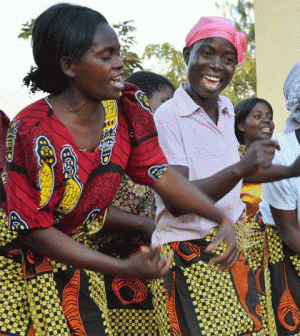- Finding Unshakable Power in a World That Wants to Pull Us ApartPosted 5 months ago
- What could a Donald Trump presidency mean for abortion rights?Posted 5 months ago
- Financial Empowerment: The Game-Changer for Women in Relationships and BeyondPosted 6 months ago
- Mental Health and Wellbeing Tips During and After PregnancyPosted 6 months ago
- Fall Renewal: Step outside your Comfort Zone & Experience Vibrant ChangePosted 6 months ago
- Women Entrepreneurs Need Support SystemsPosted 7 months ago
Malawi makes it cheaper for women to run in 2019 election

By Charles Pensulo | Thomson Reuters Foundation
“It shows what can possibly be done to begin to level the playing field”
BLANTYRE, May 4 – Female candidates will pay 25 percent less than men to run for parliament in Malawi under a scheme to get more women into power in a general election due next year, authorities have said.
The decision, announced on Thursday by the Electoral Commission, follows a fall in the number of women MPs in the last national election in 2014, when the country’s first female president Joyce Banda lost power.
Experts welcomed the move to charge women candidates less than the standard 200,000 kwacha (about $280) fee, but called for more to be done to boost female participation in politics.
“It shows what can possibly be done to begin to level the playing field,” law professor Ngeyi Ruth Kanyongolo told the Thomson Reuters Foundation in an email interview.
“A lot more substantive changes are required though for Malawi to begin to celebrate equal participation of men and women in politics, especially as candidates.”
Malawi was the first southern African country to have a female head of state, but a 2016 report by the Overseas Development Institute found women were still underrepresented. Just 16.5 percent of Malawi’s lawmakers are female.
Few women have leadership positions within political parties and their formal participation is often limited to support roles, the study found.
The unpredictability of the 2014 election meant parties were much less willing to field women candidates – even though the success rate of men and women was roughly equal, it said.
(Reporting by Charles Pensulo, Editing by Claire Cozens Please credit the Thomson Reuters Foundation, the charitable arm of Thomson Reuters, that covers humanitarian news, women’s rights, trafficking, property rights, climate change and resilience. Visit http://news.trust.org)
Our Standards: The Thomson Reuters Trust Principles.






